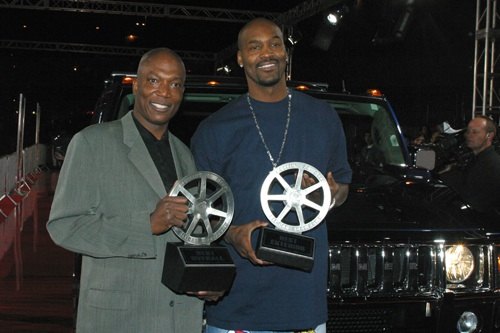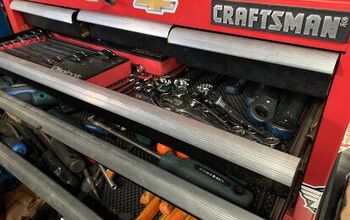Speaking of GM's Dysfunctional Culture . . . Mike Jackson
OK, I missed this one: an Automotive News [sub] Op-Ed by Mike Jackson, GM’s former marketing and advertising Veep [thanks for the heads-up, Frank]. In his piece, Jackson rips Government Motors a new one. Well, not exactly. ‘Cause excoriating GM for past mistakes would require Jackson to admit his own role in the debacle. Jackson can’t do that. That would be too much like taking the same sort of personal accountability for which the ex-exec now calls. Less enigmatically, Jackson’s rant tells GM what it should do, you know, now that he’s got the hell out of town. First up: culture. “Streamline the organization structure. Get rid of the cancerous GM lifers. The new GM must be nimble and evoke emotion and passion. Have the leaders of the divisional brand teams report directly to the office of the CEO, rather than through four layers as they have done.” More? Of course there’s more.
Accountability: “Hold sales and marketing leaders accountable for revenue and profit performance.” Rad! Don’t stop now! “Challenge American consumers by being inclusive and give them the cars and trucks that they want.” Whoa! Dude! Gopher it!
Treat dealers, ad agencies, media companies and suppliers as partners, not vendors. The days of big, bad GM and the old our-way-or-the-highway attitude are over. The new GM must value and leverage its partners or replace them with partners who embody the new culture.
Are they over? Really? Where’s the proof? Good sign: GM’s autocratic, penny-pinching group vice president, Global Purchasing and Supply Chain Bo I. Andersson has left GM to “pursue other career opportunities.” Bad sign: no one at a similar level of management has joined him. (Yet.)
Anyway, Ad Age wanted to know more. So they had a post-rant chinwag with Mike Jackson to get the real deal. And . . . the gloves are off!
Mr. Jackson, now a partner in digital agency SarkissianMason, New York, said the automaker’s U.S. operations have too many layers for approval of ads. Work on major launches begins with the divisional ad manager, and ads for crucial models must move all the way up to top management for approval. It wasn’t unusual, he said, for 15 or 20 people to present the work in meetings.
He dubbed GM as a “PowerPoint culture” and a “bureaucracy of meetings culture.” During his tenure at the automaker, Mr. Jackson said that “there were no meetings where people just sat down, had a discussion and made a decision.”
None? Even discounting hyperbole, that’s scary.
More by Robert Farago
Latest Car Reviews
Read moreLatest Product Reviews
Read moreRecent Comments
- Jkross22 When I think about products that I buy that are of the highest quality or are of great value, I have no idea if they are made as a whole or in parts by unionized employees. As a customer, that's really all I care about. When I think about services I receive from unionized and non-unionized employees, it varies from C- to F levels of service. Will unionizing make the cars better or worse?
- Namesakeone I think it's the age old conundrum: Every company (or industry) wants every other one to pay its workers well; well-paid workers make great customers. But nobody wants to pay their own workers well; that would eat into profits. So instead of what Henry Ford (the first) did over a century ago, we will have a lot of companies copying Nike in the 1980s: third-world employees (with a few highly-paid celebrity athlete endorsers) selling overpriced products to upper-middle-class Americans (with a few urban street youths willing to literally kill for that product), until there are no more upper-middle-class Americans left.
- ToolGuy I was challenged by Tim's incisive opinion, but thankfully Jeff's multiple vanilla truisms have set me straight. Or something. 😉
- ChristianWimmer The body kit modifications ruined it for me.
- ToolGuy "I have my stance -- I won't prejudice the commentariat by sharing it."• Like Tim, I have my opinion and it is perfect and above reproach (as long as I keep it to myself). I would hate to share it with the world and risk having someone critique it. LOL.


































Comments
Join the conversation
PowerPoint Culture? I used to do computer support for DuPont. Back in the 1990s, when the Microsoft Office suite of applications became pretty much standard in business and industry, Microsoft promoted Word, Excel and PowerPoint as productivity tools. I remember a very smart person described them more accurately as activity generators. You appear to be busy and doing work, but you're just prettifying your basic info. To be sure, some PowerPoint can be a valuable teaching tool, like the late Capt. Travis Patriquin's How To Win The War in Al-Anbar, which laid out what became the successful blueprint for turning the people of Al Anbar province in Iraq against Al Queda.
Have any of you ever played a game called "Buzzword Bingo"? It was really big in the late 90's and early 00's. It was a blast! It's just like Bingo, execpt that instead of numbers, you go into your meetings with cards having words like... Synergy/Synergies Metrics Leverage Inclusive Empower Quality Gateway Client/Server Secure Sockets Encryption Flight Path or Glide Path Focused Intensity On Target Launch (as in "product launch") ...and so on. Whenever you heard one of the words or phrases on your card, you checked that off. The winner was the first one who got a full row, column, or diagonal filled up. But to actually win, you were required to actually say the word "bingo" out loud in the meeting. The trick was to say it and "seem" like you were agreeing with the presenter or person who was speaking at that time. And to hope that the person speaking didn't know (or care) about the game. What fun! On one teleconference call, we had two people say "bingo" at the same time!